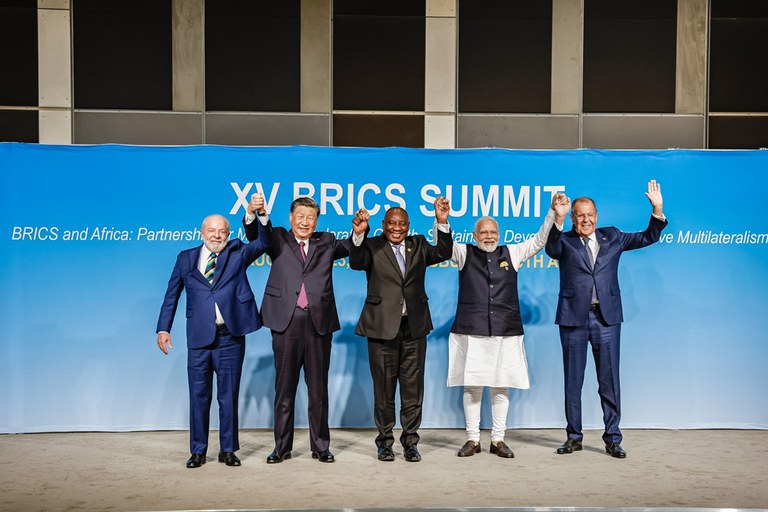
THREAD: global markets plunge investors face...
LifeLine™ Media threads use our sophisticated algorithms to construct a thread around any topic you want, providing you with a detailed timeline, analysis, and related articles.
News Timeline


BRAZIL’S Bold Gamble: Global Power Play Ignites Trade WAR Fears
— Brazil is grabbing the world’s attention as it gets ready to host the BRICS summit in July 2025. President Lula da Silva is leading a busy schedule, with plans for a regional meeting in Honduras, an official visit to France, and support for peace talks between Russia and Ukraine during his trip to Portugal.
These moves come at a tense moment. President Trump has warned he may slap new tariffs on Russian oil if there’s no deal over Ukraine. Meanwhile, China is trying to pull Latin America closer through its CELAC forum, hoping to boost its influence in the region.
Brazil’s active diplomacy shows it wants a bigger role on the world stage. The country hopes to act as mediator between major powers like the US, Russia, and China while pushing for stronger ties in Latin America.
With trade wars looming and global tensions rising, Brazil’s bold approach could shape how these big issues play out — or backfire if things go wrong.

JAPAN’S Bold Crypto Shake-UP: New LAW Sparks Fear and Hope for Investors
— Japan is moving to treat crypto like regular financial products. The country’s Financial Services Agency (FSA) wants to change the law so that digital coins fall under the same rules as stocks and bonds. This would mean tighter control over how people buy and sell crypto assets. If lawmakers agree, trading crypto with secret inside information will become illegal — just like insider trading in the stock market. The FSA hopes to get this new bill through by 2026, which could make Japan’s crypto market safer but also more restricted. Some investors may welcome these changes for better protection against scams. Others fear it could slow down innovation and limit freedom in the fast-growing digital currency world. Japan’s move might push other countries, including the U.S., to rethink their own rules on cryptocurrency. Conservatives should watch closely, as global trends could shape how American investors and businesses handle digital assets in the future.
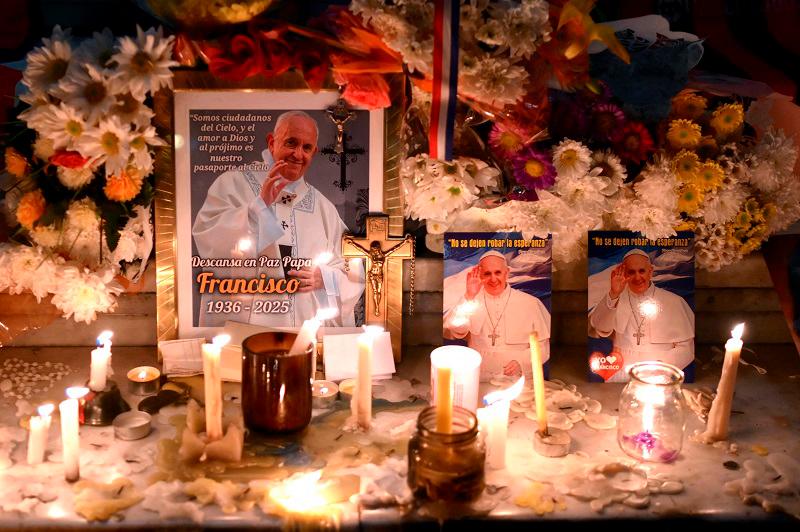
POPE FRANCIS Death Shock: World Stunned as Global News Stalls
— The world is standing still after the death of POPE FRANCIS. Business leaders worldwide have sent their condolences, but there are no major international events making headlines.
Most news outlets have shifted focus to U.S. stories, like the Arizona Department of Corrections investigation and Harvard’s lawsuit against the Trump administration. These are not global stories and offer little for those wanting international updates.
Outside of ongoing coverage about Pope Francis’s passing, there is almost no movement on the world stage. Anyone hoping for big news from abroad will have to wait until something new breaks.
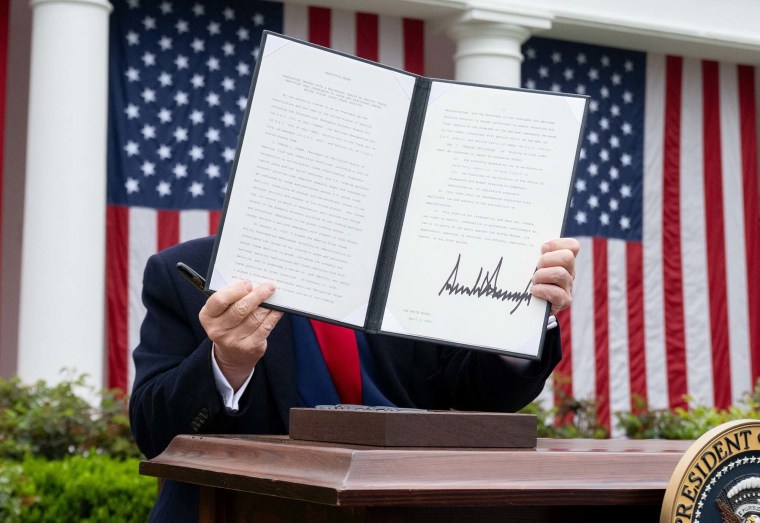
TRUMP’S Bold Trade Shock Rocks Markets, Sparks Fear And Hope
— President Trump is set to announce tough new tariffs this week. His unpredictable style keeps Wall Street and America’s allies on edge. The latest 25% tariff on cars from Europe and Mexico caused the biggest stock market drop since 2020. Elon Musk, a vocal Trump supporter, is stepping up his political game in Wisconsin. At a Green Bay event, Musk plans to give million-dollar checks to two men fighting activist judges. This move puts him front and center in the state’s Supreme Court race. Inside the Pentagon, sources say there’s chaos as leaders scramble to keep up with Trump’s aggressive trade and immigration push. Despite distractions at home and abroad, Trump keeps pressing forward with his agenda. While Biden battles lawsuits in courtrooms across the country, Trump faces legal fights of his own. With both sides under fire, Americans are left wondering what comes next as markets swing wildly and politics heat up.

TRUMP’S “Liberation DAY” Shocks Markets: Wall Street Reels as Tariffs Spark Global Showdown
— President Trump’s “Liberation Day” tariffs have rocked the markets. The Dow dropped more than 2,000 points on some days. The S&P 500 and Nasdaq both fell into bear market territory. These tariffs, reaching up to 125% for some countries, are the highest seen in a hundred years. China, the EU, and Japan are feeling the pain most. China hit back with its own tariffs on American goods. Japan’s finance minister warned of global trouble ahead. Still, US officials say they’re hopeful about future trade talks. Big companies are taking hits too. CarMax shares sank after weak earnings reports. Nvidia tumbled more than 20% from its high point this year. UnitedHealth lowered its profit forecast because Medicare costs keep rising. Experts think this wild ride will last until trade fights settle down. Some industries are holding up better than others under pressure. The Federal Reserve might cut rates three times this year if things get worse — some warn a financial crisis could happen if tariff chaos continues much longer.

PUTIN’S Shocking Praise for Elon Musk Sparks Global Buzz
— Russian President Vladimir Putin surprised many by comparing Elon Musk to Soviet space legend Sergei Korolev. Speaking with university students, Putin said Musk “raves about Mars” and called him a rare figure who makes the impossible happen. He linked Musk’s bold dreams to Korolev’s historic achievements in space.
Putin admitted that reaching Mars seems far off today but believes ideas like Musk’s can come true over time. He reminded listeners that Korolev, once doubted, led the Soviets to major victories in space exploration after years of struggle under Stalin.
Sergei Korolev was kept secret during his life but became a hero after his death for launching the first satellite and human into orbit. Putin used this story to show how visionaries can shape history, even if people doubt them at first.
Kirill Dmitriev, head of Russia’s wealth fund, added that missions to Mars are “getting more real.” Dmitriev recently visited Washington D.C., meeting with Trump officials after U.S. sanctions were lifted for his trip — a sign of possible new talks between Russia and America.;

BRITISH NATIONALS in IDF Face Shocking WAR Crime Allegations
— A group of lawyers, led by human rights barrister Michael Mansfield KC, has filed a war crime complaint against 10 British nationals linked to the Israeli military. These individuals, whose identities are kept secret for legal reasons, include officers and dual nationals. The allegations focus on possible war crimes during their service with the Israeli Defense Forces (IDF).
Paul Heron, legal director at PILC, pointed out the unique challenges this investigation faces. With experience in the Met Police War Crimes Unit, he expects a thorough probe into these serious accusations. These claims differ from those made by the International Criminal Court about Israel’s alleged starvation tactics as war crimes.
Independent MP Iqbal Mohamed expressed concerns about constituents unknowingly living near individuals involved in alleged war crimes. This raises questions about accountability and how the public views such serious accusations. Meanwhile, the Metropolitan Police confirmed they will decide whether to investigate these claims of war crimes and crimes against humanity.
— World shares tumble as Trump’s tariffs take effect US President Donald Trump’s latest tariff increases have triggered a fresh wave of declines in global markets
TRUMP’S Trade WAR: A Global Financial Nightmare?
— The Bank of England warns of a looming global financial crisis due to Donald Trump’s trade war. The Financial Policy Committee (FPC) pointed out risks from new global tariffs introduced on April 9. These tariffs have increased uncertainty in world markets, possibly leading to debt spirals for governments.
The UK, with its open economy and large financial sector, is especially vulnerable to shocks from international trade conflicts. Rachel Reeves, the Chancellor, confirmed ongoing talks with the Bank’s Governor to watch market developments amid these tensions.
Trump’s threats of more tariffs on China could escalate the conflict and harm international cooperation. Such actions may worsen financial conditions worldwide, according to the FPC’s warning note.
Despite these worries, analysts believe that the well-capitalized UK banking system might offer some protection against economic turmoil. However, watching trade war developments remains crucial as they could greatly impact both local and global markets.
TRUMP’S 104% China Tarifs Stun Global Markets
— The UK and EU stock markets are feeling the pressure as President Trump’s tariffs, including a steep 104% on Chinese goods, take effect. EU trade commissioner Maroš Šef?ovi? announced that the EU will not retaliate against these U.S. tariffs, citing limited options for response. European Commission President Ursula von der Leyen suggested a “zero-for-zero” trade deal to the White House amid talks of an EU-US free trade zone by Trump adviser Elon Musk.
Concerns about the economic impact of these tariffs are growing in Europe. Patrick Martin, head of France’s Medef business lobby, warned that U.S. tariffs could harm France’s economic growth and possibly lead to a recession. Meanwhile, Wall Street has also taken a hit as hopes for tariff delays fade, with the S&P 500 dropping 1.6%.
Elon Musk has publicly criticized Trump adviser Peter Navarro over comments related to Tesla and the broader effects of U.S. tariffs on American businesses. In other business news unrelated to tariffs, a Chinese billionaire is looking to purchase multiple Hudson’s Bay locations in Canada due to an emotional connection with the brand and aims to prevent its financial collapse. Binding bids for these assets are expected by April 30th with lease offers due by May 1st.;

US TRADE Policies Cause GLOBAL Economic Jitters
— Recent U.S. tariffs have left Canadian small businesses facing economic challenges, leading to job cuts and price hikes. The Canadian Federation of Independent Business reports nine percent of owners have issued layoff notices due to these tariffs. Businesses are raising prices by an average of 3.7 percent this month as they struggle with rising costs and decreased consumer spending.
In Alberta, business leaders feel cautiously optimistic after avoiding new U.S.-imposed tariffs that threatened the energy sector. Adam Legge from the Business Council of Alberta feels relieved but remains wary about future trade developments under current policies.
President Trump’s tariff strategy aims to equalize import taxes with those imposed by other nations, sparking debate over its economic impact on sectors like agriculture and manufacturing. Meanwhile, Japan’s Prime Minister Shigeru Ishiba expressed disappointment over Japan’s exclusion from tariff exemptions and plans support for affected industries domestically.
These developments highlight growing concerns about global economic instability driven by U.S. trade policies, particularly affecting small businesses worldwide as they navigate uncertain financial landscapes.

TRUMP’S Trade Policy Shocks: US Stocks Plunge in Market Chaos
— The EURO has surged to a six-month high as investors react to the latest U.S. tariff announcements. Meanwhile, the Australian dollar has taken a hit, reflecting global market volatility. These currency shifts highlight ongoing economic uncertainties fueled by international trade tensions.
U.S. stock futures have plummeted after China’s retaliatory tariffs on American goods, marking another phase in the global trade conflict. The Dow Jones dropped 1,679 points, causing widespread concern among investors and financial strategists who urge calm and strategic planning during these turbulent times.
Bitcoin ETFs saw nearly $100 million in net outflows as markets reacted sharply to tariff news from the Trump administration. This exodus underscores investor anxiety and uncertainty about future economic conditions amid escalating trade disputes with China.
Goldman Sachs has revised its oil price forecasts downward due to fears of a potential recession and increased supply from OPEC+. Gold prices have steadied after an initial selloff triggered by aggressive U.S. tariff policies, indicating cautious optimism among investors seeking safe-haven assets in uncertain times.
TRUMP’S Bold Trade Move Shakes Global Markets
— Former President Donald Trump has signed orders for “reciprocal tariffs” aimed at countries with unfair trade practices. This plan is to protect American jobs by taxing goods from nations harming the U.S. economy. It’s a major shift in U.S. trade policy, affecting many imports.
Trump calls these tariffs vital to balance foreign advantages over American manufacturers, showing his focus on American workers and industries. This aligns with his re-election strategy, emphasizing economic nationalism as a key point. Supporters see it as reclaiming economic control, while critics warn of possible retaliatory tariffs and tense international relations.
Economists are split on the effects, worried about complicating U.S. trade further and raising consumer costs if other countries retaliate. The announcement has sparked mixed reactions across political lines, showing different views on its economic impact potential.
As Trump boosts his campaign efforts, this sweeping tariff policy will be watched closely by both domestic and international stakeholders for its effects on global trade dynamics and the future direction of the U.S economy’s path forward.
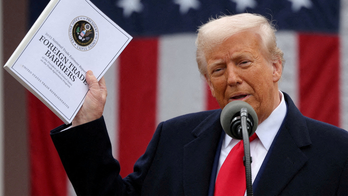
TRUMP’S Trade WAR Shocks: China And EU Face Major Impacts
— President Donald TRUMP announced sweeping tariffs affecting nearly all U.S. trading partners. China and the EU are hit hardest. The White House imposed a 10% tariff on all imports, with China facing an additional 34% on top of an existing 20%, totaling a hefty 54%. This move is just shy of Trump’s campaign promise of a 60% tariff on Chinese goods.
China reacted strongly, promising countermeasures against what it calls “protectionism.” The Chinese Commerce Ministry argues that trade wars have no winners and urges the U.S. to resolve differences through fair talks. Meanwhile, European nations face a blanket 20% tariff along with existing tariffs on steel, aluminum, and car exports.
Canada’s Prime Minister Carney has vowed to “fight” these tariffs as other world leaders assess their economic impact. The European Union has also promised retaliation against Trump’s aggressive trade policies. As tensions rise globally, nations brace for potential economic fallout from this escalating trade war initiated by the U.S..

“TRUMP’S Tariffs Spark Gold Rush: Investors Flock to Safety”
— Gold prices soared to near all-time highs after President Donald Trump announced reciprocal tariffs. Investors rushed to gold as a safe-haven asset amid rising trade tensions. The precious metal hit a record peak of $3,148.88, marking an increase of over $500 in 2025 alone.
Wall Street showed resilience as stocks edged higher despite Trump’s looming tariff announcements. While the market felt some relief, uncertainty lingers about which sectors will be most affected by these new trade policies. Concerns remain about potential economic slowdowns from these tariffs.
The U.S. dollar weakened against major currencies as traders awaited more details on Trump’s tariff plans, called “Liberation Day.” This anticipation has already impacted international trade and financial markets globally. Meanwhile, the EUR/USD exchange rate climbed near 1.0820 due to the dollar’s decline and ongoing market anxieties over impending tariffs.
In other financial news, Newsmax stock plummeted 77% after an initial post-IPO rally of 2,550%. Despite reporting significant losses in 2024, the stock’s volatility continues to attract risk-seeking investors looking for high-stakes opportunities in a turbulent market environment.

— Canaccord Genuity sells US wholesale market making business The firm is divesting to sharpen its focus on US capital markets operations, according to CEO Jeff Barlow
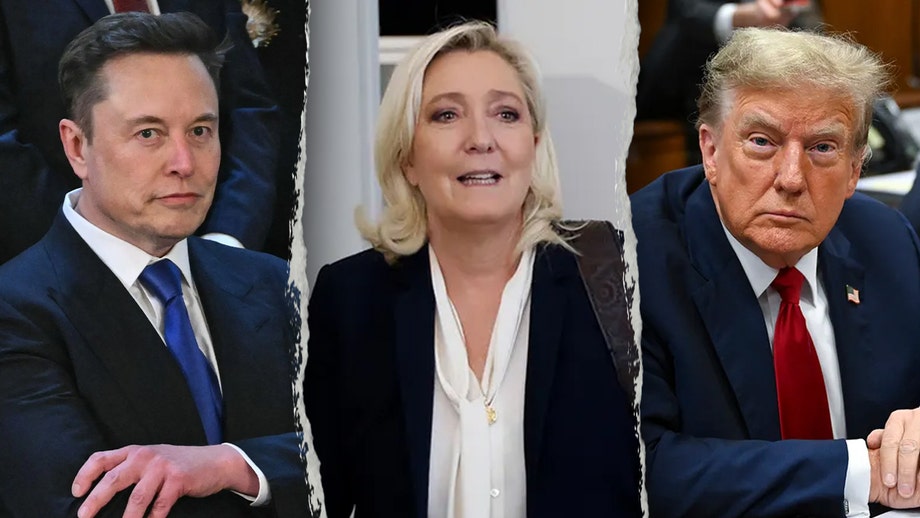
LE PEN’S Conviction: Conservatives Outraged by Global Legal Attacks
— Marine Le Pen, a well-known right-wing figure, was convicted of embezzlement on Monday. This sparked criticism from conservative voices. Elon Musk compared her legal issues to those of former President Donald Trump. He accused the left of using the legal system to target political opponents worldwide.
Le Pen’s conviction prevents her from running for office for five years, similar to other right-wing leaders facing legal challenges globally. Israeli Prime Minister Benjamin Netanyahu and former Brazilian President Jair Bolsonaro are also dealing with ongoing court battles. These cases show a trend where conservative politicians face intense judicial scrutiny.
President Trump voiced his concern over Le Pen’s sentence, noting its similarity to his own legal troubles in the U.S. He stressed how these convictions affect leading candidates like Le Pen and drew parallels with his experiences in America.
The targeting of right-leaning politicians through legal means remains controversial among conservatives who see it as an abuse of power by their opponents. Many believe these actions aim to undermine democratic processes when electoral wins seem out of reach for the left.
CANADIAN PRIDE Surge: US Businesses Face Tough Times
— The “Buy Canadian” movement is gaining steam, impacting U.S. companies looking to expand into Canada. Demeter Fragrances, a Pennsylvania perfume maker, stopped its expansion plans due to changing Canadian tastes. CEO Mark Crames noted a growing dislike for American products in Canada.
This trend isn’t just about perfumes but spans different sectors like drinks and citrus fruits from the U.S. Canadian businesses are thriving as local goods win over consumers. Jason McAllister of Irving Personal Care reported their Canadian-made diapers’ weekly shipments have quadrupled, showing this shift in buyer behavior.
The movement worries U.S.-based consumer companies that depended on the Canadian market for growth chances. Executives are now rethinking strategies as they face more difficulties entering the Canadian retail space amid rising protectionist feelings.
— Global stock markets SWING sharply as Trump’s “Liberation Day” approaches Investors react to the impending event, causing volatility across financial markets

TRUMP’S Bold Stance on Auto Price Hikes and Global Diplomacy Revealed
— President Donald Trump recently declared he “couldn’t care less” if foreign automakers hike prices due to his auto tariffs. This bold move shows his commitment to putting American interests first, despite foreign economic pressures. Trump also confirmed he won’t fire anyone involved in the Signal group chat controversy.
Internationally, Iran has rejected direct nuclear talks with Trump but is open to indirect discussions. The President has warned of military action if Tehran doesn’t agree to a nuclear deal with Washington, highlighting his strong approach to national security and diplomacy.
Trump criticized Russian President Vladimir Putin and warned of secondary tariffs on nations buying oil from Russia amid Ukraine tensions. These potential tariffs are part of Trump’s broader strategy as he nears an April 2 deadline for major tariff actions against adversaries while staying open to negotiation deals.
Domestically, Republicans face challenges as Democrats aim for gains in Florida’s Sixth District despite Trump’s past success there. Meanwhile, Trump withdrew Congresswoman Elise Stefanik’s nomination for U.N. ambassador amidst a slim GOP House majority and upcoming special elections, underscoring internal party dynamics and strategic shifts before future political battles.
— Trump’s executive order sparks election uncertainty President Donald Trump’s sweeping changes to US election procedures are raising concerns among state and local officials about potential voter confusion ahead of the 2026 midterms
— Trump’s executive order sparks election uncertainty President Donald Trump’s sweeping changes to US election procedures are raising concerns among state and local officials about potential voter confusion ahead of the 2026 midterms

ISRAELI STRIKES in Gaza: Tragic Death Toll Sparks Global Outrage
— The health ministry in Gaza reports a shocking death toll of 50,000 as Israel launches new military strikes. The Israeli government had earlier warned of “complete destruction and devastation” if Hamas did not release hostages.
Dr. Feroze Sidhwa, an American doctor in Gaza, saw an explosion hit the front of his hospital building. This attack reportedly aimed at Ismail Barhoum, a political figure within Hamas. The strike has worsened violence and increased casualties in the area.
Israel’s actions have heightened the already tense situation in Gaza. The world watches closely as tensions rise between Israel and Hamas amid ongoing conflict and humanitarian concerns.
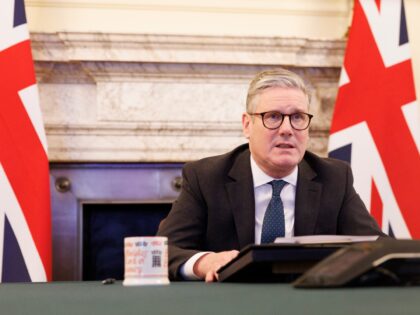
GLOBAL SUMMIT on Ukraine: Defiant Stand Against Russia
— The upcoming virtual summit, known as the “coalition of the willing,” will focus on military and financial aid for Ukraine. Leaders from around 25 countries, including European partners, Australia, Canada, New Zealand, and Ukraine itself, will participate. NATO and EU officials are also expected to join these crucial discussions.
The meeting follows a U.S. proposal for a 30-day ceasefire in Ukraine that President Zelenskyy supports. Russian President Putin has shown conditional support but wants details clarified before agreeing. U.S. Secretary of State Marco Rubio expressed “cautious optimism” about Putin’s potential backing after meetings with envoy Steve Witkoff.
Notably absent is a representative from the United States due to a shift under President Trump’s administration compared to Joe Biden’s policies. Trump’s recent clash with Zelenskyy highlights this change in strategy towards resolving the Russia-Ukraine conflict through different means than his predecessor used.
UK leader Starmer remains skeptical about Russia’s intentions and stresses that concrete commitments are necessary as Putin engages in what he calls “pointless games” with Trump’s peace plan proposals. Starmer criticized the Kremlin’s disregard for Trump’s ceasefire proposal as evidence of Russia’s lack of seriousness about achieving peace in Ukraine.

REPUBLICAN REPS Face Public Showdown: Cheers vs Jeers
— Two Republican congressmen, Chuck Edwards and Harriet Hageman, faced different reactions at recent public meetings. Despite House Speaker Mike Johnson’s advice against such gatherings, both representatives engaged with their constituents. Edwards encountered vocal opposition in Asheville, North Carolina, while Hageman received quieter inquiries in Evanston, Wyoming.
In Asheville, opponents of Edwards expressed their discontent through chants and interruptions during his session. The atmosphere was tense as attendees challenged him on various issues. Meanwhile, in Evanston’s heavily Republican setting, Hageman addressed questions with less hostility from the audience.
Voters at both events showed interest in actions taken since President Donald Trump assumed office. In Wyoming, Joy Walton sought clarity on Elon Musk’s role within the Trump administration. Hageman explained Musk’s position as a “special government employee” with top-secret clearance and praised his efforts to cut government spending through foreign aid contract reforms.

GLOBAL News LULL: Why the World is Quiet Right Now
— Currently, there are no significant breaking news stories outside the United States and United Kingdom. This lack of major events highlights a temporary lull in global headlines.
Readers looking for updates from other regions might need to check back later or explore different topics for the latest developments.
Stay informed by keeping an eye on reliable sources, as situations can change rapidly across the globe.

GOLD PRICES Soar: How Trade Uncertainty is Shaking Markets
— Gold prices have hit a record high of $2,985 as trade tensions shake up markets. Mixed signals from the Trump administration are fueling fears of a trade-induced recession. Investors are flocking to gold and the Japanese Yen, pushing the metal closer to the $3,000 mark.
The S&P 500 index has seen its first 10% drop from its peak since 2023. Market volatility is increasing, with many stocks showing big daily declines. This correction shows growing uncertainty in financial markets amid ongoing economic challenges.
Despite risks, variable-rate mortgages are attracting borrowers looking for lower initial rates. The current economic climate is influencing mortgage trends and borrower behavior significantly. Homebuyers must weigh potential savings against future rate increases in their financial decisions.
The IRS warns that over one billion dollars in unclaimed tax refunds for 2021 will expire soon if not claimed by April 15, 2025. After this deadline, these funds will revert to the U.S Treasury permanently. Taxpayers should act quickly to claim their refunds before it’s too late.

TRAIN HIJACKING in Pakistan: Hostages Face Grave Danger
— In a shocking turn of events, Pakistani insurgents hijacked a passenger train on Tuesday, putting around 500 people at risk. The separatists have threatened to harm 182 hostages if their demands aren’t met. Authorities are working tirelessly to resolve the crisis as it unfolds.
This event highlights the ongoing tensions in Pakistan and raises serious concerns about public transportation safety in areas affected by insurgency. The situation is changing rapidly, with updates expected as negotiations continue.
The hijacking underscores the struggle between government forces and separatist groups in the region. Public safety is at risk, prompting urgent action from Pakistani authorities to secure a peaceful resolution.

RUSSIA’S Ceasefire Dilemma: US Negotiations Face Challenges
— Russian President Vladimir Putin is facing hurdles in agreeing to a ceasefire with Ukraine. A senior Russian source says any deal needs detailed terms and guarantees. The United States is actively involved in talks, but Moscow insists that agreements must be on its terms, not Washington’s.
GREENLAND ELECTION SHOCKS WORLD: Trump’s ANNEXATION Threat BACKFIRES
Greenland’s center-right opposition party won a key election influenced by President Donald Trump’s annexation threat. The election showed Greenlanders’ strong desire for independence from Denmark, with 85% opposing US annexation. Recent polls reveal that nearly half of the population sees Trump’s interest as a threat.
TRUMP’S TRADE WARS: Global MARKETS on EDGE
President Trump continues to push tariffs, causing retaliation from the EU and Canada and unsettling global markets. This strategy raises fears of a potential U.S. recession and broader economic slowdown as investor confidence wavers under trade tensions’ pressure.

SENSEX SURGE: Investors Cheer as Market Confidence Grows
— The SENSEX index opened at 74,474.98 on March 9, 2025, marking a positive start to the trading day. This opening was slightly above its previous close of 74,332.58, signaling growing investor trust in the market’s stability.
As trading progressed, the index gained over 350 points, hitting a high of 74,713.17. This upward trend shows optimism among investors and suggests a strong economic outlook for India.
Growth in the SENSEX is often seen as an indicator of economic health and can positively influence global markets. Investors will be closely watching to see if this momentum continues in the coming days.
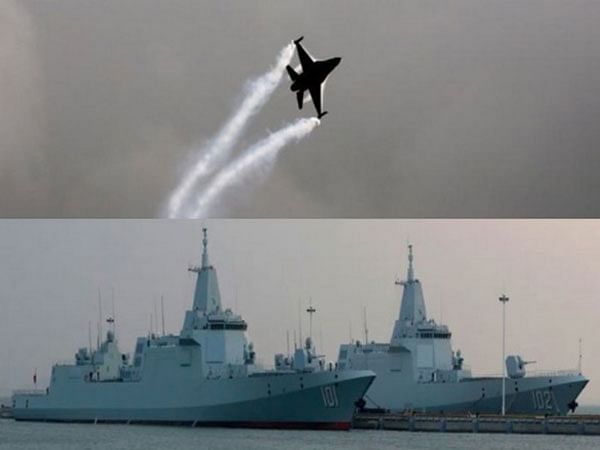
CHINA’S Military Moves Near Taiwan Stir Global Concern
— Taiwan has spotted 11 Chinese military aircraft and 9 vessels close to its territory. This marks a major increase in China’s military activity around Taiwan.
China is also boosting its cognitive warfare against Taiwan by setting up a misinformation unit within its United Front Work Department. This move raises fears of rising tensions in the region.
In other news, AIM Vaccine’s improved diploid rabies vaccine has been approved for clinical trials. The new vaccine promises better results than current options, highlighting AIM’s innovative power on the global stage.

NEW RABIES Vaccine: A Game-Changer In Global Health
— AIM Vaccine has announced a major breakthrough with its new rabies vaccine approved for clinical trials. The company claims this vaccine is much more effective than current options.
This progress highlights AIM Vaccine’s innovative abilities and strategic global approach. Since February, the company has made several advancements, positioning itself as a leader in vaccine innovation.
The approval is a crucial step in fighting rabies more effectively worldwide. With clinical trials underway, AIM Vaccine aims to transform how rabies is prevented and treated globally.

SOUTH CHINA SEA Showdown: Rising Fears and Global Stakes
— Armed forces from several nations are boosting their presence in the South China Sea, raising tensions over territorial claims. Chinese naval vessels have confronted American warships in disputed waters, leading to close encounters. The United States reaffirms its commitment to freedom of navigation, while China insists the area is under its sovereignty.
Regional allies like Japan and Australia are worried about the rising tension and call for diplomatic solutions. Chinese vessels have intercepted U.S. Navy ships during routine operations, prompting condemnation from the U.S. State Department. In response, China defends its actions as protecting sovereignty and warns against foreign provocations.
Both sides prepare for possible military drills in the region, raising fears of accidental conflict. Analysts warn that ongoing military posturing could trigger a major geopolitical crisis affecting trade routes and international relations across Asia-Pacific.
The situation demands careful handling to avoid unintended escalation and maintain regional stability as tensions continue to simmer in these contested waters.

METAL STOCKS Soar: Investors Cheer Global Demand Boom
— METAL stocks like Tata Steel, Hindalco, and Vedanta are seeing a rise of up to 4% in share prices. This jump is due to favorable global market conditions and increased demand for metals. Investors feel hopeful about the sector’s future.
Tata Steel shares have climbed about 4%, thanks to positive quarterly results and higher production forecasts. Hindalco gains from rising aluminum prices and a brighter outlook as global demand increases.
Vedanta’s shares are also climbing because of strong performance and smart strategies to boost production efficiency. These companies’ gains show broader economic conditions that favor raw material demand.
Market experts point to international trade dynamics, better supply chains, and more infrastructure spending worldwide for this bullish trend. These factors boost investor confidence in METAL stocks amid growing global need for raw materials.

TRUMP’S Trade WAR: Global Markets in Chaos
— President Donald TRUMP’s recent tariffs have sparked swift retaliation from Mexico, Canada, and China. These actions have thrown financial markets into chaos, raising fears of inflation and uncertainty for businesses.
Imports from Canada and Mexico now face a 25% tariff, with Canadian energy products specifically taxed at 10%. This move has heightened global trade tensions significantly.
China responded quickly to the U.S. tariffs, escalating an already heated international dispute. A Chinese spokesperson warned that these measures could harm the U.S. economy by disrupting beneficial trade relations.
Analysts worry about potential backlash against U.S. exports as these trade disputes unfold. The situation is seen as a risky maneuver that might reshape global trade dynamics and impact both consumers and businesses in the long run.
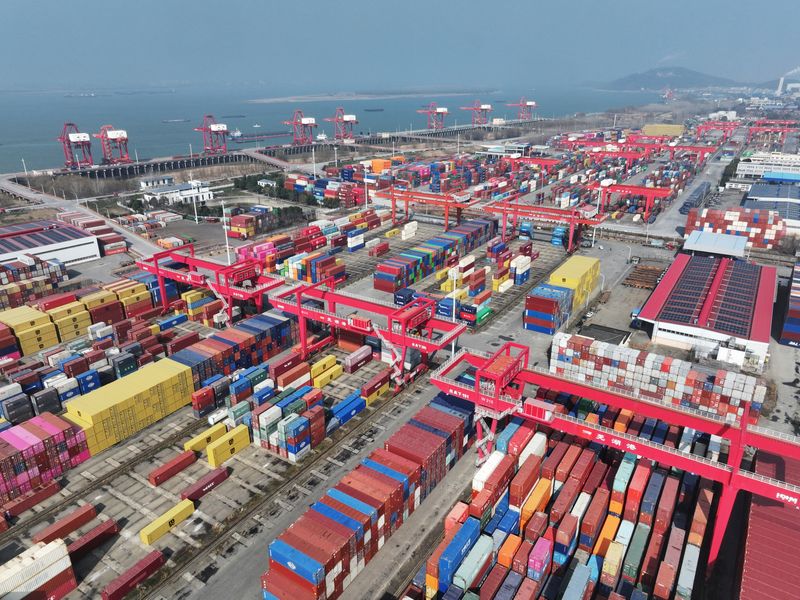
CHINA STRIKES Back: US Farmers Face NEW Import Levies
— China has hit back at the latest U.S. tariffs by placing new import levies on $21 billion worth of American farm products. This move increases tensions between the two biggest economies, edging them closer to a trade war. Yet, Chinese futures markets have shown strength and stayed steady.
TRUMP SLAMS ZELENSKYY: WAR OF WORDS OVER RUSSIA CONFLICT
President Donald Trump has criticized Ukrainian President Volodymyr Zelenskyy for his comments on the ongoing Russia-Ukraine conflict. Trump’s remarks highlight international tensions and differing views on global conflicts. These events point to major challenges in international relations and trade today.

CHINA STRIKES Back: US Farmers Face Uncertain Future in Trade WAR
— China swiftly hit back at new U.S. tariffs by imposing higher import taxes on $21 billion of American agricultural goods. This move ramps up tensions between the world’s two largest economies, edging them closer to a trade war.
Despite the increased tariffs, China’s futures markets stayed steady, showing strength amid this economic clash. The Chinese government has stated it won’t be cowed by these new actions from the Trump administration.
This situation highlights the growing economic rivalry and its impact on global trade relations, especially in agriculture — a vital sector for both countries. As this dispute unfolds, American farmers might struggle to keep their export markets in China.
)
INDIAN Woman’s EXECUTION in UAE Ignites Global Outrage
— A 33-year-old Indian woman, Shahzadi Khan, was executed in the UAE on February 15, 2025. The Indian Ministry of External Affairs confirmed her execution after she was convicted for the death of a four-month-old child under her care in Abu Dhabi. Her family insists she was wrongfully implicated.
The tragic incident happened after the child received routine vaccinations in December 2022. Despite numerous appeals from her father, Shabbir Khan, including pleas to India’s President and Prime Minister, efforts to save her life failed. The Indian Embassy provided legal representation during her trial.
The Delhi High Court called the situation “unfortunate” but confirmed Shahzadi’s execution before dismissing a plea by her father seeking information about her legal status and well-being. This case has highlighted issues surrounding legal processes for Indians abroad.
Shahzadi Khan’s cremation is set for March 5, 2025, in Abu Dhabi. This case raises concerns about international legal representation and underscores challenges faced by Indian nationals working overseas under foreign judicial systems.

UN Chief’s SHOCKING Plea to END Global ‘Warmongers’
— On the third anniversary of Russia’s invasion of Ukraine, UN Secretary-General António Guterres criticized leaders he called “world’s warmongers.” He condemned their disregard for human rights and the suffering caused by their actions. Guterres urged an end to conflicts that worsen crises and deepen global misery.
During a press briefing, Guterres stressed the urgent need for international cooperation to address ongoing crises and restore peace. He highlighted the rise in casualties and displacement due to military conflicts. The Secretary-General emphasized leaders’ moral duty to prioritize peace over warfare.
Guterres called on member states to unite in finding diplomatic solutions to ongoing conflicts. He suggested that addressing crises like Ukraine could lead to broader global stability. His remarks highlight the dire implications of geopolitical conflicts that demand collective action for peace and security.
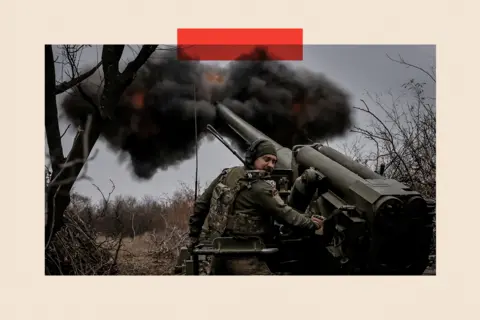
ZELENSKYY SLAMS Trump: Ukraine’s Fight for Survival Ignites Global Debate
— Ukrainian President Volodymyr Zelenskyy has criticized former U.S. President Donald Trump for his comments on Ukraine’s military support from the United States. Trump suggested that Ukraine is “gambling with World War Three,” which sparked a strong response from Zelenskyy. He stressed Ukraine’s fight for sovereignty and the crucial role of international backing against Russian aggression.
International leaders are worried about Trump’s remarks, fearing they might affect U.S.-Ukraine relations. European leaders continue to support Ukraine, highlighting the need for ongoing military and economic aid. This diplomatic tension arises amid ongoing hostilities between Ukrainian and Russian forces, with reports of increased conflict in certain areas.
Experts warn this public clash could shape future U.S. policy toward Ukraine, especially if Trump returns to power. The debate over military aid and diplomatic ties might impact Eastern Europe’s political and economic stability. The situation highlights the urgent need for international diplomacy to address the crisis in Ukraine while considering how internal U.S. politics affect global affairs.

NVIDIA EARNINGS Shock: Investors Prepare for Wild Ride
— Nvidia is about to report its earnings, with revenue expected to jump 73% from last year. This is a slowdown from the previous year’s 265% growth. Still, Wall Street analysts are hopeful about Nvidia’s future.
The company shines in the AI sector, making it a strong buy according to many experts. Nvidia’s solid performance and market leadership are shown in its high financial health score of 3.62 by InvestingPro’s AI model.
Oppenheimer analysts express confidence in Nvidia before its earnings report, highlighting the company’s promise despite market ups and downs. While some investors might be wary due to recent changes, Nvidia’s focus on innovation keeps it leading the tech industry.

INNOVATIVE BUSINESS Ideas Face Economic Hurdles In Today’S Market
— The current market offers many opportunities for new business ideas. AI-powered financial coaching apps are gaining popularity, especially among women entrepreneurs. There’s also a growing demand for senior care services due to an aging population. Eco-friendly products, second-hand fashion, and zero-waste packaging are on the rise as consumers focus on sustainability.
Labour’s proposed tax hikes on businesses could threaten low-paid jobs in the UK. Employers face financial pressure from rising business rates and national insurance costs. These changes may cost businesses about £5 billion, potentially impacting low-income workers significantly.
In the U.S., stock markets saw a sharp decline with the Dow dropping nearly 750 points amid tariff concerns. Reports suggest U.S. business activity is nearing a stall with growth at a 17-month low. Businesses express widespread worries over federal policies affecting their operations and future optimism.

PI COIN’S Astonishing Rebound: What Investors Need to Know
— Pi Coin has made a surprising comeback, jumping 73% after its initial crash. It’s now trading at $1.24, with a market cap hitting $8.6 billion. This quick recovery is turning heads in the crypto world.
Thangpandi Durai, CEO of Koinpark, stresses that for Pi Coin to thrive long-term, ecosystem adoption is key. He points out that governance, security, and real-world use are crucial for steady growth.
Durai urges investors to do their homework before diving into Pi Coin investments. Ensuring it fits their financial goals and risk tolerance is vital in the unpredictable crypto market.

EATON FIRE Tragedy: Families and Children Face Heartbreaking Challenges
— Ceiba Phillips, 11, returned to his Southern California neighborhood a month after the Eaton Fire turned it to rubble. His best friend’s house and school were destroyed. Although his home survived, the backhouse where his grandparents lived was reduced to ashes.
The fire in Altadena on January 7 was one of California’s most destructive. Returning families face trauma as they deal with the loss of familiar surroundings. Children like Ceiba are struggling with grief and confusion over their changed lives.
Parents must help their children cope amid this devastation. Lori Peek, a sociology professor at the University of Colorado Boulder, stresses reestablishing routines quickly for kids’ well-being. Staying connected with friends and having honest conversations are crucial steps in recovery for these young victims of natural disaster trauma.

GAY IMAM’S Tragic END Sparks Global Outrage
— An openly gay imam in South Africa was tragically shot dead, stirring global outrage. Known for advocating LGBTQ+ rights within the Muslim community, his murder highlights ongoing safety issues in hostile regions. The world mourns this loss and condemns the violence.
South Africa, often seen as progressive on gay rights compared to other African nations, faces intense scrutiny. Activists demand justice and better protection for LGBTQ+ individuals. Authorities are investigating amid calls for stronger safety measures.
This tragedy has sparked discussions on homophobia, religious acceptance, and global solidarity against violence targeting LGBTQ+ communities. It underscores the challenges faced by those living openly amid societal opposition. More developments are expected as responses unfold in South Africa and beyond.
:max_bytes(150000):strip_icc()/GettyImages-2192142603-a439d21d07ef4ace9708e5f08f188b0b.jpg)
CHINA’S Tech Boom: How Deepseek AI is Shaking Global Markets
— China’s tech industry is booming, thanks to the rise of the DeepSeek AI model. Major companies like Alibaba, Baidu, and Xiaomi are seeing big benefits. This surge has pushed Hong Kong’s Hang Seng Tech Index up this year.
Alibaba, co-founded by Jack Ma, stands out in this market rally. The company’s growth shows the broader impact of tech advancements on China’s economy. Investors are watching these changes for possible global effects.
The rise in China’s tech stocks might affect U.S. investments and international trade ties. As U.S. markets close with small changes in the S&P 500, global investors keep an eye on shifts in Chinese tech trends.
This ongoing rally highlights China’s growing influence on worldwide economic dynamics, making it a key player to watch in global markets.

TRUMP’S Bold Trade Plan: A Shockwave For Global Markets
— Former President Donald Trump is set to announce a new RECIPROCAL tariff policy on Thursday. This plan aims to match the higher duty rates imposed by other countries on U.S. goods. Trump’s strategy seeks to counteract foreign trade barriers, including regulations and subsidies, that hinder American exports.
The proposed tariffs are part of Trump’s broader effort to reshape trade in favor of American interests. By imposing equivalent charges on countries taxing U.S. products, the plan could escalate global trade tensions. This approach marks a significant shift in U.S. trade policy towards a more competitive stance against international markets deemed unfair.
Investors and analysts are watching closely as this announcement could impact stock markets, especially sectors dependent on international trade. The potential for increased tariffs may affect industries vulnerable to such changes, leading to market volatility.
This development is breaking news and has not yet appeared in existing news timelines, highlighting its significance for economic observers and policymakers alike. The implications for U.S.-foreign trade relationships remain a critical point of focus moving forward.

TRUMP’S Bold Trade Plan Sends Global Markets Into Turmoil
— President Donald TRUMP is set to announce new reciprocal tariffs on Thursday. These tariffs aim to match the tax rates other countries impose on U.S. imports. This move is part of Trump’s strategy to reshape international trade and counteract barriers that hurt American businesses.
Trump’s plan has sparked discussions among global trading partners, potentially impacting economic relations and market stability. The announcement follows a memo he signed, directing his team to calculate duties that align with those charged by other nations.
In addition to trade policy changes, the Trump administration has started workforce reductions across federal agencies, affecting recent hires in departments like Education and Energy. These actions reflect a broader agenda focused on reducing government size and boosting efficiency.
Meanwhile, Southern California faces severe weather threats as heavy rains prompt evacuations due to potential debris flows in wildfire-scarred areas. Residents are urged to stay alert as CalTrans crews work tirelessly to reduce flooding risks in affected regions.
/Super%20Micro%20Computer%20Inc%20HQ%20photo-by%20Tada%20Images%20via%20Shutterstock.jpg)
SUPER MICRO Stock Skyrockets: Investors Cheer Bold 2026 Goals
— Super Micro’s stock jumped after the company set bold goals for 2026, calming investor worries about its future. Despite controversies and a Department of Justice probe into its accounting, Super Micro is working to stabilize. The company hired a new accountant and announced an independent review found no wrongdoing.
Nasdaq gave Super Micro more time to submit filings by February 25, which the company plans to meet. This extension follows a tough year with challenges noted in the Hindenburg report. Investors reacted positively to these updates, causing stock prices to soar after the business update on February 11.

Bank of England’s RATE CUT Sends Shockwaves Through Markets
— The Bank of England has cut interest rates by 25 basis points, causing the Pound Sterling to drop sharply against the US Dollar. This move shows worries about economic growth and inflation. Experts expect more rate cuts in 2025, signaling a careful approach to monetary policy.
Market analysts warn this could affect savings rates and borrowing costs, urging people and businesses to rethink financial plans. The immediate effect saw GBP/USD fall by 0.93%, hitting a session low of 1.2359.
This has increased market volatility, raising concerns about future economic stability in the UK. As uncertainty grows, many wonder how these changes will impact their finances and investments moving forward.
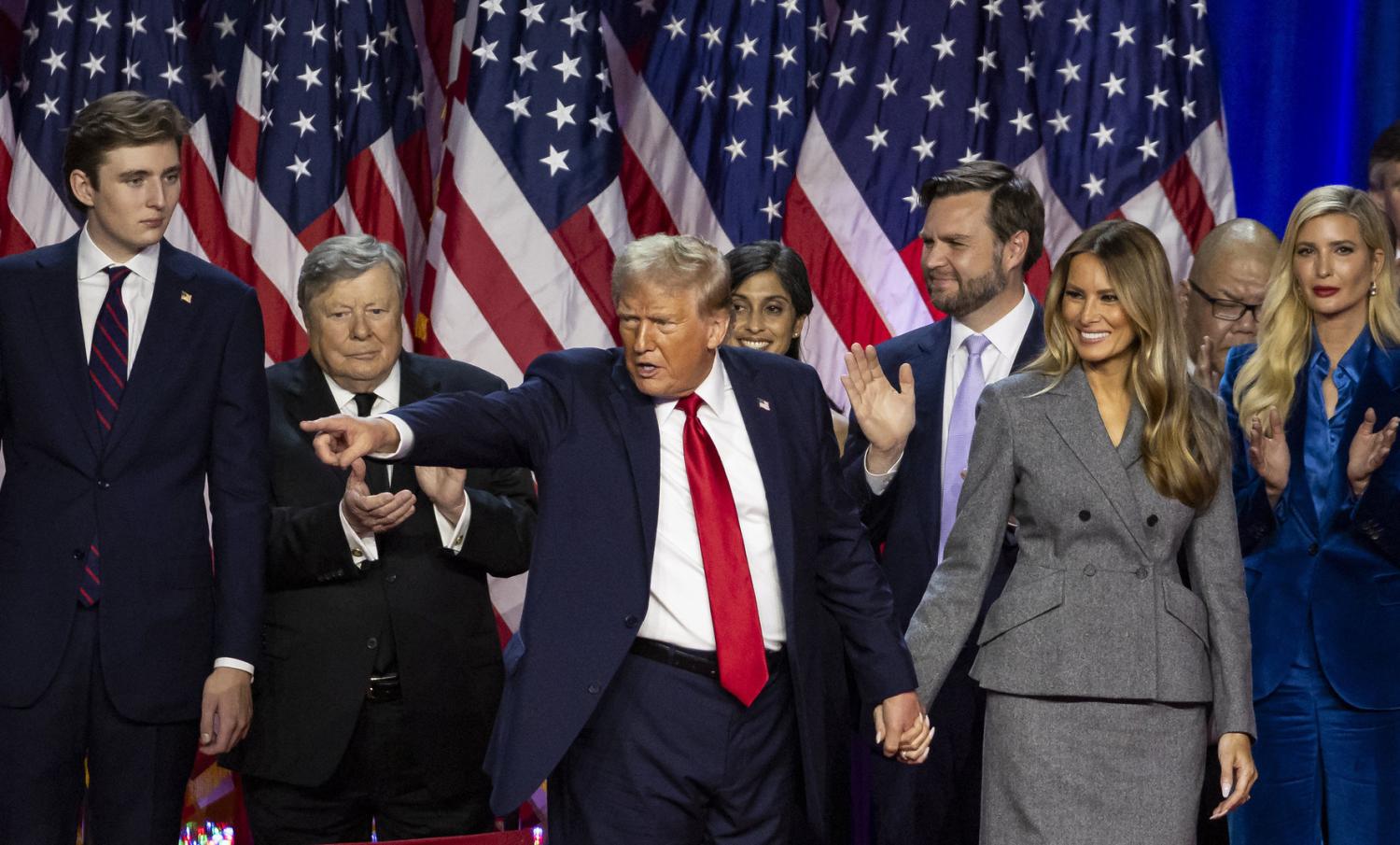
TRUMP’S Gaza Plan Sparks Global Outrage
— President Trump wants to turn the Gaza Strip into a tourist hotspot by relocating Palestinians. This idea is facing major challenges and global criticism. Many see it as an effort to remove Palestinians from their homeland after Israel’s long fight against Hamas.
Arab countries, like Egypt and Jordan, have rejected Trump’s call to take in more Palestinian refugees. Saudi Arabia also disagrees, stating that peace with Israel depends on creating a Palestinian state that includes Gaza. Trump’s plan might threaten the shaky ceasefire in Gaza and make it harder to free hostages taken during Hamas’ October 2023 attack.
Palestinians view Gaza as key to their national homeland, aiming for an independent state there, in the West Bank, and east Jerusalem — areas captured by Israel in 1967. Most of the world backs this goal, adding more opposition to Trump’s controversial plan.

TRUMP’S Gaza Plan Sparks Global Outrage
— Israel is preparing for Palestinians to leave Gaza, despite the world rejecting President Trump’s plan. The proposal aims to temporarily move Palestinians, but details are unclear. Egypt opposes it, warning it could harm its peace deal with Israel.
Trump announced online that Israel would give Gaza to the U.S. after the conflict without sending American troops for redevelopment. Palestinians fear permanent displacement and oppose this idea strongly. Egypt and Saudi Arabia worry about regional stability and demand a Palestinian state including Gaza before normalizing ties with Israel.
The Trump administration faces global criticism and has already cut back parts of its plan. Israeli officials claim relocation is voluntary, but Palestinians are determined to stay in their homeland. The situation remains tense as key U.S. allies push back against the plan’s impact on peace and stability in the region.

TRUMP’S Bold Gaza Move Ignites Global Fury
— President Donald Trump has proposed a bold plan for the U.S. to take control of the Gaza Strip, suggesting Palestinians should relocate. This idea marks a major shift from long-standing U.S. policy on the Israeli-Palestinian conflict. Trump’s proposal has sparked outrage from international leaders and organizations worried about Palestinian rights and regional security.
The plan could involve American troops, raising tensions in an already volatile region. Critics say this move ignores international norms and might lead to more instability in the Middle East. Palestinian leaders and several Arab states strongly oppose it, seeing it as a violation of their sovereignty and rights.
Trump’s administration has also ordered USAID workers worldwide to go on leave, impacting U.S. aid efforts during critical times like the crisis in Gaza. Humanitarian groups warn that these actions could worsen suffering for displaced people in conflict zones like Gaza.
Activists stress that these decisions highlight an urgent need for renewed dialogue to resolve long-standing conflicts effectively and peacefully in the region.

“TRUMP’S Gaza Takeover Plan: A Global Shockwave”
— President Donald TRUMP’s proposal for the U.S. to take control of Gaza has shaken American policy on the Israeli-Palestinian conflict. The plan suggests resettling Palestinians elsewhere, drawing widespread condemnation from global leaders and organizations. Critics argue this could undermine efforts toward a two-state solution, as highlighted by CBS News commentators.
Trump’s statement about potentially using American troops to “take over” Gaza raises concerns about changing the Middle East’s geopolitical landscape. This controversial idea could displace over a million Palestinians, complicating regional tensions further. Such drastic measures have sparked fears of more instability in an already volatile area.
In related developments, the Trump administration is withdrawing nearly all USAID workers from their global posts immediately. This decision jeopardizes international aid efforts and raises questions about America’s commitment to humanitarian initiatives worldwide. These actions reflect a tense political climate surrounding U.S. foreign policy, especially regarding ongoing Middle Eastern conflicts.
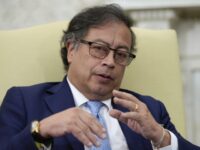
COLOMBIAN PRESIDENT’S Shocking Defense of Cocaine Sparks Global Outrage
— Colombian President Gustavo Petro caused a stir by defending cocaine, arguing it’s only illegal because it’s made in Latin America. He suggested legalizing it could break the drug trade and sell it like wine. Petro compared cocaine to whiskey but didn’t provide scientific proof for his claims.
Petro criticized the U.S.'s handling of fentanyl, highlighting its deadly effects despite not being made in Colombia. He accused North American pharmaceutical firms of introducing fentanyl to Mexico for profit without facing major policy crackdowns. His remarks came during a six-hour government meeting broadcasted nationally, inspired by Cuba’s communist regime practices.
The meeting was unprecedented in Colombian politics but echoed tactics used by socialist regimes like Venezuela’s. Petro called it an “exercise in transparency,” yet it quickly became a platform for public grievances among his administration members. Some officials openly criticized their peers, showing internal discord within Petro’s government.
Petro admitted his administration has failed to meet over 75 percent of its campaign promises since taking office in August 2022. He spent much time scolding his ministers for their lack of progress on key projects, especially targeting the Housing and Defense ministries for unfinished work and criticizing the Education Minister for tardiness.

Video
GLOBAL Coral BLEACHING Disaster: Scientists Sound The Alarm on Vanishing Reefs
— Coral reefs around the globe are facing their worst bleaching event ever. Experts say 84% of reefs have been hit in the past year, with many now lifeless and white. The National Oceanic and Atmospheric Administration has expanded its alert system to track this growing crisis. Soaring ocean temperatures, blamed on climate change and El Niño, are at the heart of the problem. Key areas like the Caribbean and Australia’s Great Barrier Reef have lost up to 40% of their coral. Even places once considered safe are now showing signs of damage. Scientists warn that if ocean warming keeps up, these bleaching events could become permanent. This would hurt marine life, weaken coastal protection, and impact millions who depend on healthy reefs for food or work. Environmental groups call for urgent action to cut emissions and protect what’s left of our reefs. Without it, we risk losing one of nature’s most important resources forever.
More Videos
Invalid Query
The keyword entered was invalid, or we couldn't gather enough relevant information to construct a thread. Try checking the spelling or entering a broader search term. Often simple one-word terms are enough for our algorithms to build a detailed thread on the topic. Longer multi-word terms will refine the search but create a narrower information thread.
Politics
The latest uncensored news and conservative opinions in US, UK, and global politics.
get the latestLaw
In-depth legal analysis of the latest trials and crime stories from around the world.
get the latest